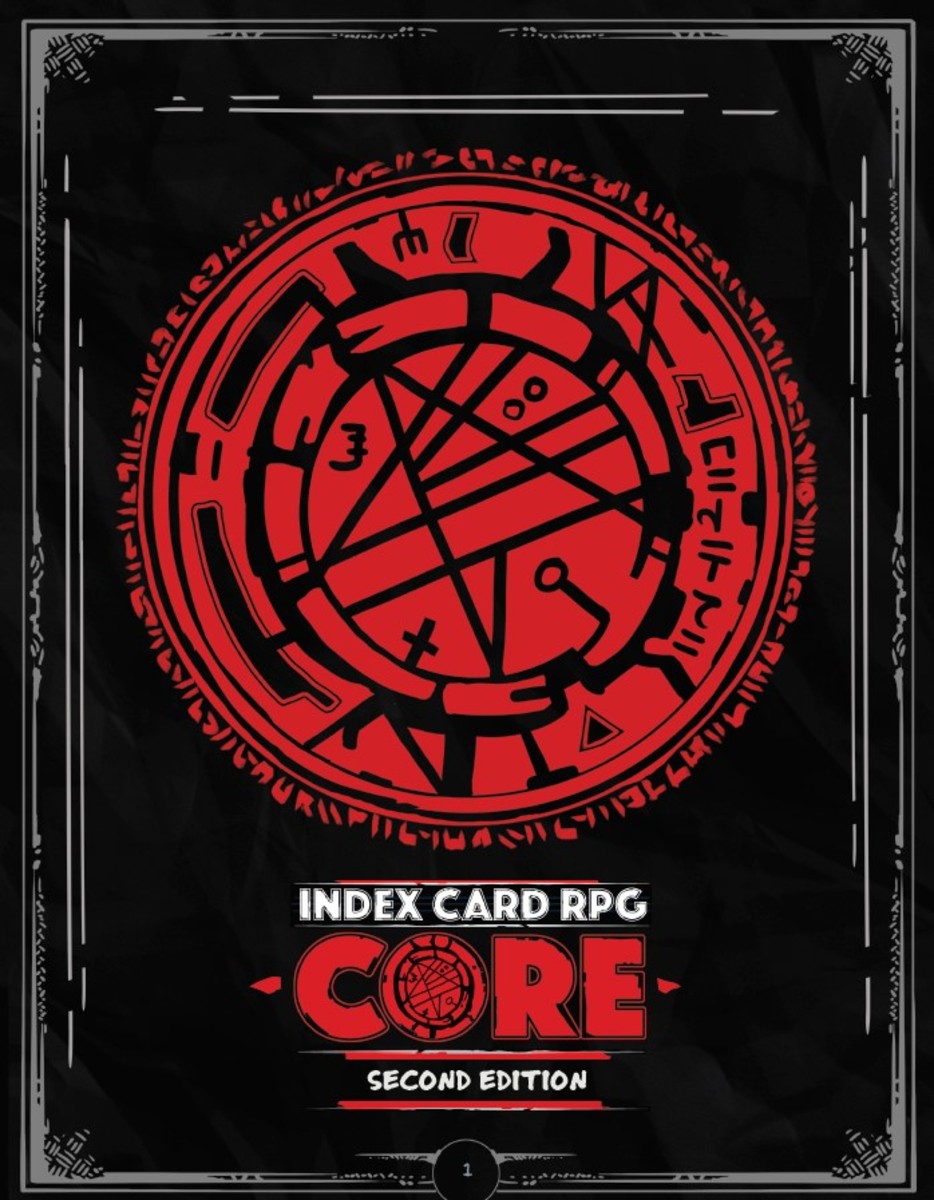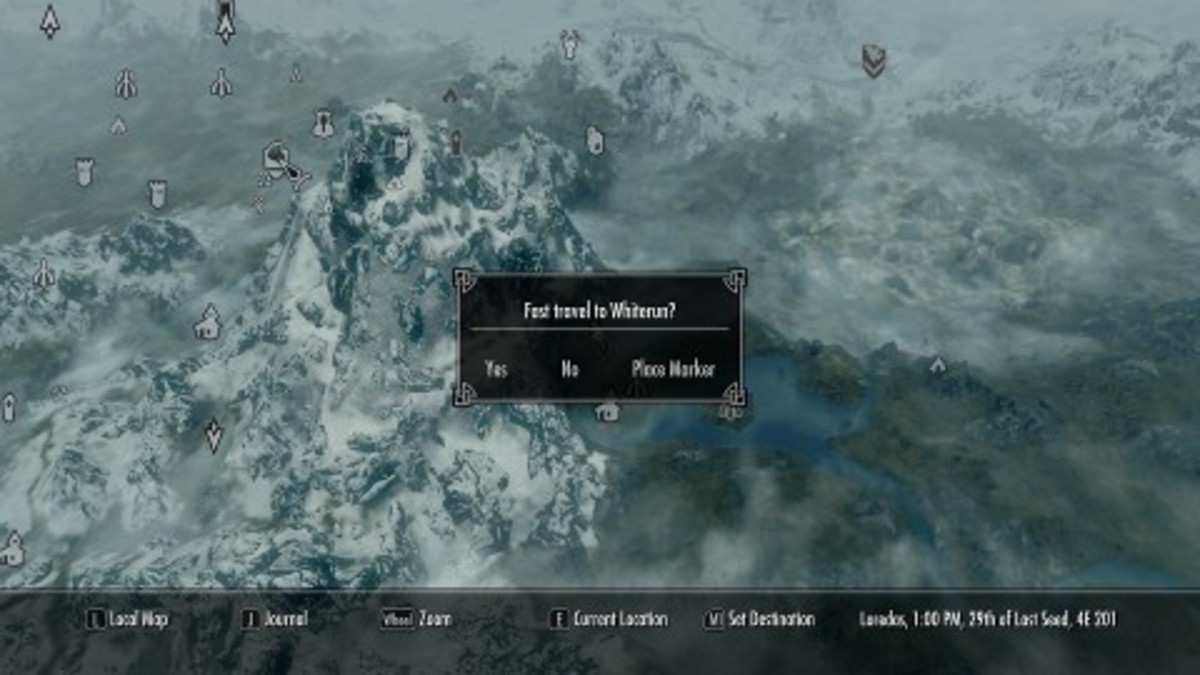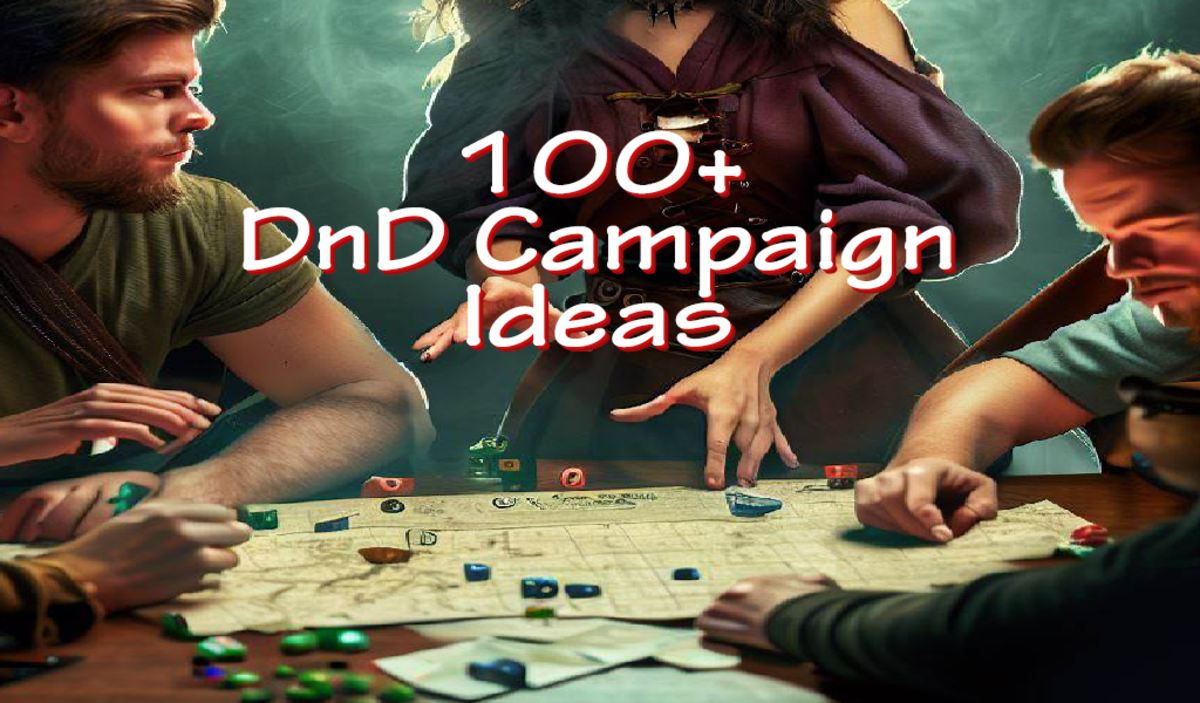What is Tabletop Role-Playing?
Dungeons and Dragons
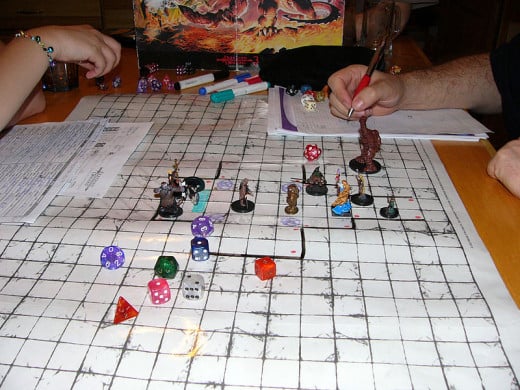
Tabletop the first role-playing format
With the popularity of MMORPG's(Massively Multiplayer Online Role Playing Games) and other computer role-playing games, lots of people are becoming involved in RPG's who have no idea about their tabletop roots. Where do tabletop games differ from their computerized counterparts? Where did they begin? How do they relate to the electronic versions?
Gary Gygax
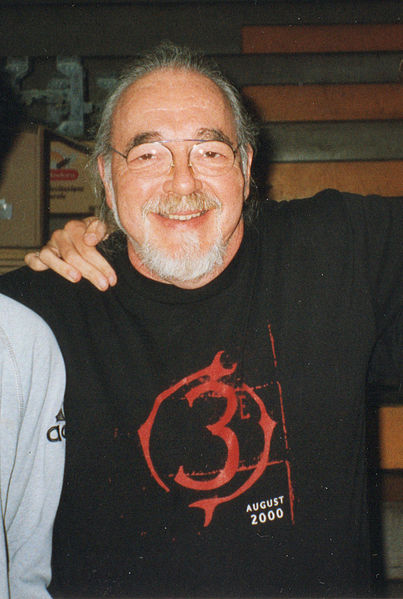
The latest version of the first rpg
It began with war-games
The earliest roots of tabletop RPG's is actually found in the war-gaming hobby. War-gaming can probably trace it's origins to antiquity with games like chess that serve to teach basic strategy. Modern war-games are often more complicated than chess but also serve to better simulate the conditions of an actual battlefield and use dice to simulate the uncertainty of an actual clash between soldiers. The popularity of works of fantasy like the Lord of the Rings trilogy prompted hobbyists to want to simulate the kinds of battles that occurred between the fantastic creatures portrayed. Although some in the hobby are satisfied using paper maps and card-stock tokens to represent military units others prefer to represent them through small figurines commonly called miniatures. The most dedicated use complete scale miniature terrain to conduct their war-games. The genesis of role-playing games as a separate hobby from war-gaming is usually credited to Gary Gygax the chief creator of Dungeons and Dragons. Gygax is usually credited with the idea of using each miniature in a fantasy war-game to represent an individual warrior rather than a squad or other group of soldiers. Naturally rules to represent individual fighters required reflecting their individual strengths, weaknesses and equipment. It also evolved to handle questions like, “What if my character wants to try to bluff his way past the guard instead of fighting him?”
The father of a hoby
A popular "universal" game system
Improv theatre+campfire storytelling+war-games=role playing games
From roots in war-gaming, role-playing evolved into a hobby that combines war-games with elements of improv theater and campfire storytelling. Unlike it's war-game predecessor a tabletop RPG won't work as well with just two players. In fact many game groups range in size from four to six. Usually one person in the group takes the role of “game master” or in Dungeons and Dragons “dungeon master.” The remainder of the group usually each control one individual “character” each as part of an “adventuring party.” Contrary to what you would expect from a war-game, the division of the group into “adventuring party” and “game master” (often abbreviated GM) is not an adversarial one. Although when in game battles occur the GM is in control of the opposing force, the entire exercise is a cooperative one. All the people involved in a role-playing game are working together to tell a story. The game master will create a rough plot, set in a commercially published world or one of his own creation, and describe the situation to the other players. Each player then describes the actions which their characters take. The GM takes the part of everyone else in the games setting that the player characters (or PC's) interact with, cooperative or adversarial, and describes their reactions to the actions of the player characters. Often someone will try to take an action which their character is not absolutely certain to accomplish. Success or failure is adjudicated using the games rules and rolling dice. Much of the uncertainty and die rolling in a RPG is, as you might expect of something that evolved from war-games, related to combat. When in game battles do occur the forces controlled by the game master are, usually, carefully picked to challenge but not overwhelm the PC's. This does not mean the players will have an easy or certain victory though. Much of the fun in these games is from the players vicariously overcoming their characters difficulties. Including overcoming defeat or the death of a character. Just as it isn't fun to read a story or watch a show where the characters have it easy playing a game like that becomes dull. However, where a story about characters who keep striving against unbeatable odds can be inspirational, a game on that premise can become frustrating to play.
Another popular "universal" system
Electronic vs tabletop
Some might assume that with the enhanced visual presentation and professional voice acting computerized role-playing games (both online multi-player and single-player) would be better than tabletop versions. While commercial computer and console game designers certainly have a deeper tool-chest to work with for their presentation they lack things present in a tabletop game. Where everything in a computer game must be scripted both players and GM are free to improvise in a tabletop game. Even when a computer game allows a player to freely enter questions to the computer controlled characters they can only get pre-programed responses. If a PC is defeated in a computer game they must revert to an old save (or re-spawn point in a multi-player game). In a tabletop game defeat could lead to retreat and regroup, or capture. In a computer game characters are only captured when the story script calls for it. In such games capture at the scripted point is unavoidable regardless of player actions. At all other times in such games combat always ends in victory or death. In a computer game a player must follow a scripted quest. The computer might include random encounters in the game but a player can't finish the game (or advance in a multi-player game) without following the script, although they may have options regarding the order in which quests are accepted. In a tabletop game however, if the players misread clues and go in the wrong direction the GM may give them a new set of clues. A tabletop game master also has the option to move the next encounter into the PC's path wherever they go or to improvise what happens while they chase wild geese and the villains go on unopposed. The last option is a stark contrast to computer games where the villains plans generally wait for the player to act. Whether the tabletop game masters ability to improvise is better than the audio-visual presentation quality of the computer version is a matter of individual taste.
A group of gamers
![A group of role playing gamers, enjoying a night session. Dice, snacks, beverages, character sheets [This photo was taken and published with the consent of all four identifiable subjects] by Diacritica A group of role playing gamers, enjoying a night session. Dice, snacks, beverages, character sheets [This photo was taken and published with the consent of all four identifiable subjects] by Diacritica](https://usercontent2.hubstatic.com/8891477_f520.jpg)
Examples of some virtual tabletop systems
- d20Pro Virtual Tabletop. Play Faster. Play Better. Play Anywhere. d20Pro.
d20Pro VTT or Virtual Tabletop is designed to play any d20 based game online with others. Play Faster. Play Better. Play Anywhere. Use d20Pro. - 3D Virtual Tabletop - role playing table online & on iPad, iPhone, Mac, Android, Kindle Fire &am
A gorgeous 3D virtual tabletop that looks like a real one, for pen & paper role-playing games like D&D and Pathfinder. Try it now! - Roll20: Web-based online virtual tabletop for all roleplaying games (RPGs)
Roll20 is the free, easy way to play tabletop games (such as pen and paper RPGs) online with others. It's completely web-based, so it runs right in your browser. It supports video and voice chat, background music, character sheets, a massive art libr - Fantasy Grounds :: The Virtual Tabletop for Pen & Paper Roleplaying Games
The blurred line between electronic and tabletop
Not that the division between computer and tabletop gaming is a hard line. With play be e-mail games and websites offering virtual tabletop programs and services as well as group web chat it's possible to play a tabletop game online with a group scattered worldwide. Virtual tabletops don't have all the bells and whistles of commercial computer games but they do have a lot more flexibility. One big advantage that the tabletop games have (be the table virtual or physical) over their computerized counterparts is their infinite extendability. When the story of a single player computer game has ended the only thing you can do is go back and start over, unless there are expansions you can buy. MMORPG's need to have a mostly static world for new players to be able to enjoy the full story and their may only be so many quests without expansion packs. In a tabletop game though the GM can create new stories when the old ones end. Empires might rise and fall in the game world, players, even the game master, may come and go, characters might die and be replaced but the game can go on as long as there is a group interested in playing.





